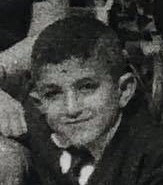In response to my previous posts on Egypt Events, starting at (1), a very dear friend of mine asked for my views and reaction to the website Top ten reasons why sharia is bad for all societies that makes claims relating to what appears to be a “darker” side of Islam, which provide views that leave the readers confused about what exactly is happening, and what is in the hearts and minds of the Muslim people?
This question rolled my memory back to the morning of September 11th, 2001. I was driving for an early morning meeting at Lucent Technologies; the radio tuned to WGN Chicago. While my mind was immersed in sorting what I have to do for the day, I heard in the background a plane crashed in the WTC in NY! It was surreal, at first; I thought it was a talk about a new hit movie, until I realized it’s news! My mind changed on how the meeting will turn. I walked in and saw the big question mark sign on the faces and in the eyes of my peers. I guess I looked to them like big question mark walking on two legs. The emotions, internally, became muddier when the second plan hit. Since the World Trade Center bombing of 1993, and Jihad in America video, by Steven Emerson, aired on PBS in 1994, American people have had a growing not so fuzzy feelings, nor clear understanding where these guys—Muslims and Arabs—are coming from?
I have been fortunate through the past 20 years to be in the company of very fine and high caliber colleagues, as well understanding neighborhoods. I hold a lot of respect, and stand up in admiration for non-Muslim and non-Arab Americans who have absorbed these dramatic events, in a little over 15 years; this is a short period of time. Notwithstanding, the American Muslim and Arab communities, specifically, have experienced a similar growth to understand what is happening, and to stand up defending their values–largely in line with American values—not being hijacked by neither extremists, biased medias or groups.
As I was reading the article, my friend asked me to comment on, I felt it as a heavy object gradually pressing on my chest. Not because the negative portrayal of how Muslims and Islam are, but for the burden of researching and properly responding to each point, being not fully employed writer as the authors on this website are. I’m a professional engineer, not an Islamic scholar, not a subject matter expert in Islamic Laws, nor a columnist to address each issue. However, I am obliged to respond to my friend. Having some good understanding of Islam, as well as living for a significant amount of time the Eastern and Western cultures, I believe my input would have a good value to add. Firstly, by opening my mind and heart to not only with him, but also with all Americans. Secondly, to clarify the ambiguities incomplete pictures create, as portrayed in the mentioned website.
I’ll take a two pronged approach in my response; namely, straight comments on raised issues, and a longer path to lay the foundation for better understanding of how Muslims build their case and make a judgment. The reason is the former is a short answer that will not provide the complete picture, thus leaving gaps in understanding the whole paradigm of how the different pieces of Islam fit together. The views I’ll be sharing are my best effort research, understanding and presentation. There are many Muslims, I believe, who share the same views, but definitely there is a spectrum of other insights. The style will be straight presentation for the reader to build his/her own perspective.


I refer a quote from a friend Rev. Brian Cox. He summarizes a course for those of us who find ourselves defending positions, ideologies, faiths, etc. Mark siljander.
Our “…focuse (should be) on creating a reconciling spirit between antagonists as a prelude to constructive joint problem solving…It is a gathering of those who feel a call from God to explore a new and emerging paradigm as a passionate alternative to religious extremism and militancy that is currently choking the world to death with hatred and hostility. . History has proven that religious extremism and militancy is a powerful spiritual and social force that will not be overcome by calls for moderation. We must become passionate advocates for faith-based reconciliation between Christians and Muslims because this is the deepest expression of submission to God.”
The problem with the west is as Edward Said stated in his book (Orientalism (1978)):
Western knowledge about the East is not generated from facts or reality, but from preconceived archetypes that envision all “Eastern” societies as fundamentally similar to one another, and fundamentally dissimilar to “Western” societies. This a priori knowledge establishes “the East” as antithetical to “the West”. Such Eastern knowledge is constructed with literary texts and historical records that often are of limited understanding of the facts of life in the Middle East.
The pervasiveness of Orientalist constructs and representations in Western scholarship and reporting, are highly related to the exercise of power over the “Orient” and imarialism.